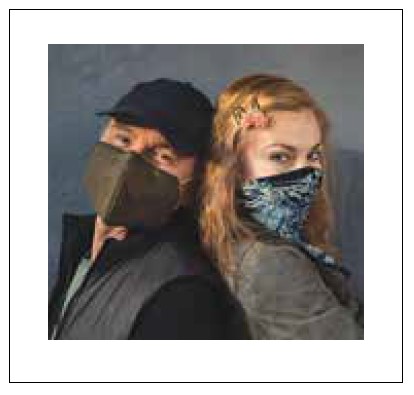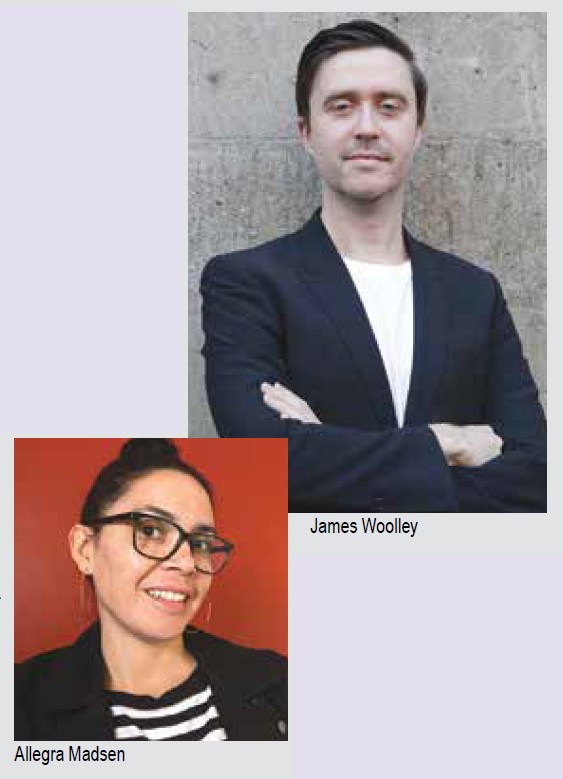
By Jennifer Kroot and Robert Holgate–
We’re longtime fans and friends of San Francisco’s legendary Frameline Film Festival. The magical festival and its passionate audiences are particularly beloved by Jennifer, who has screened four films there, including her documentary The Untold Tales of Armistead Maupin, which opened Frameline41 in 2017.
Frameline45 begins June 10. We wondered how they’ve dealt with the challenges of the pandemic, and wanted to hear their plans for this year’s festival, so we called Executive Director James Woolley, and the new Director of Programming, Allegra Madsen.
J&R: So, Frameline is “hybrid” this year? What does that mean?
Allegra Madsen: Last year, everybody had to quickly learn how to do everything online for a virtual festival. This year we’re going to do it all—virtual and live, or hybrid. It’s difficult to juggle so many moving parts, but we’re ready.
James Woolley: We have something for everyone: for those who want to stay home, for those who live across the country, for those comfortable with the outdoor experience, and for those ready to get back into a cinema. We’ve got it all!
J&R: What excites you about this year?
James Woolley: Frameline’s going national for the first time with our streaming. It’s an exciting prospect for us to reach audiences across the country that have never been able to attend the festival. In particular, we’re looking at large cities without queer film festivals.
Another big moment is that we’re reopening the Castro Theatre! This was not something, even in March, that I would have thought we’d be doing, but the world has just changed so quickly. We’ll be at The Castro for the final two days of the festival. Frameline will open that historic venue, and afterwards The Castro will remain open with their regular programming.

Allegra Madsen: I’m super excited about the Juneteenth celebration screening of Ailey at Fort Mason Flix. Of course, Juneteenth celebrates the official end of slavery in the United States, and it’s also a celebration of the constantly evolving struggle for freedom. Being able to screen this documentary about choreographer Alvin Ailey, the queer, Black legend, feels really powerful for me.
J&R: Have you communicated with other festivals about how to navigate the festival landscape during the pandemic?
James Woolley: I speak to the executive directors of other Bay Area festivals every few weeks, as a group. And once a month I speak with many of the queer film festivals in North America. There’s actually been a lot more collaboration and passing on insights than previously, like how to make a streaming program work. It’s definitely harder to make a streaming program as large as an in-person program, because people just become overwhelmed if the program is too large.
Allegra Madsen: Our program is focused and tight this year, and, yes, it is new territory. There have also been conversations around how we can make a virtual premiere special and add that extra layer of excitement that a film festival normally brings.
J&R: Frameline always screens some great local films. Who is being featured this year?
James Woolley: There are eight local, feature length films, all of which will screen in a venue, not just online.
Allegra Madsen: When we decided to go ahead with the in-person screenings, we had to decide which films would get these very limited spots. I decided on U.S. premieres and San Francisco films. We have the documentary Baloney about San Francisco’s all male burlesque revue. We have Genderation that is technically a German documentary, but it’s a beautiful portrait of San Francisco’s trans elders. We’re closing the festival with No Straight Lines: The Rise of Queer Comics by local director Vivian Kleiman.
J&R: Are there elements of the virtual festival that you may keep post pandemic?
James Woolley: Streaming will absolutely stay. We’ll just work out the best way for it to fit into our festival. That’s something we’ll really map out after the festival. One of the great things about doing this hybrid approach is seeing what works and what people gravitate towards. We’ll learn from that.
J&R: We’re thrilled that Frameline will reopen the Castro Theatre. Will there be safety protocols?
Allegra Madsen: Yes. It’ll be a smaller audience, and everyone will wear masks. We will socially distance inside the theatre, so not every seat will be full. Obviously, there won’t be concessions, so it’ll be a different moviegoing experience, but we’re back at the Castro!
It’s a full circle moment for me. Being inside the Castro again will be the moment when I’ll feel like we’re coming out the other side.
Frameline45 is June 10–27. For information on streaming, screenings and events: https://www.frameline.org/
Jennifer Kroot is a filmmaker, known for her award-winning LGBTQ themed documentaries, including “The Untold Tales of Armistead Maupin” and “To Be Takei.” She studied filmmaking at the San Francisco Art Institute, where she has also taught. She is a member of The Academy of Motion Picture Arts and Sciences.
A humanitarian, as well as a designer, Robert Holgate is dedicated to critical social issues. With his hands-on approach to philanthropy and social justice, he supports the advancement of local and national social causes. For more information: https://www.rhdsf.com/
Published on June 10, 2021
Recent Comments